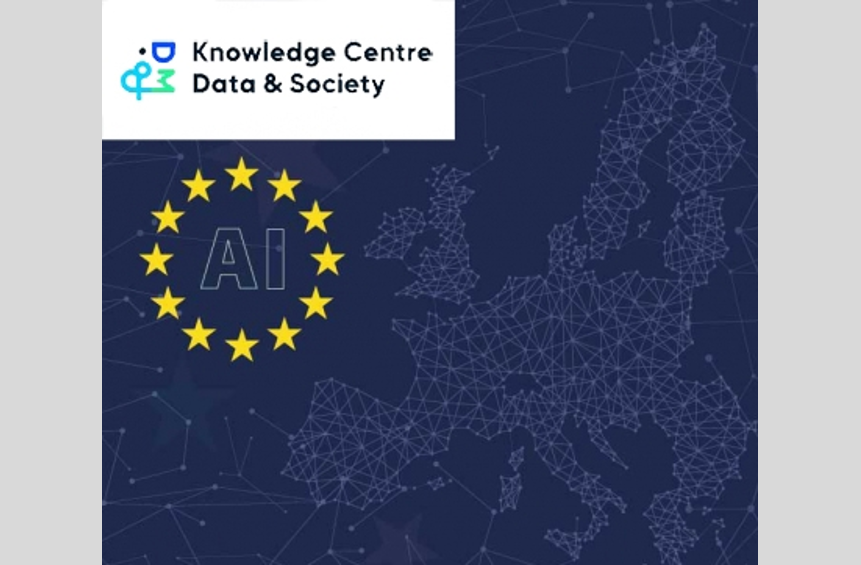
ΑΙhub.org
European Commission AI white paper: feedback gathered by the Knowledge Centre Data & Society

By Knowledge Centre Data & Society
On 4 June 2020, the Flemish Knowledge Centre Data & Society (KCDS) organised a consultation to gather feedback on the European Commission’s white paper on artificial intelligence. In this article, you can read the key elements of the feedback.
The KCDS was founded in 2019 and focuses on the interplay between data, AI and society. It enables socially responsible, ethical, and legally appropriate implementations of AI in Flanders (Belgium). It aims to enable Flemish companies, policymakers, regulators, and citizens to achieve the greatest social and/or economic benefits of AI. Therefore, it brings together diverse representative organisations/stakeholders and facilitates the creation of tools, advice, and recommendations. It comprises three existing research centers: imec-SMIT (Vrije Universiteit Brussel), Centre for IT & IP Law (KU Leuven) and imec-MICT (Ghent University).
Together with the European Commission, the KCDS wants a European policy for AI that meets our societal needs and values. The white paper is a first step in this process. In order to gather feedback on the document, the KCDS organised a consultation session with a panel of experts from Flanders. These are the most important remarks:
1) Key concepts such as social welfare and human dignity are set out as objectives in the white paper. What they mean, however, is unclear. KCDS advises to use clear and well-defined terms and concepts in the text and therefore recommends additional refinements.
2) Artificial intelligence as a keyword was defined broader than the narrow, machine learning interpretation of the High Level Expert Group on AI (HLEG). This seems to be an appropriate approach as it is wider/broader than the definition used in the documents issued by the HLEG, which focuses on machine learning. However, finding a balance remains necessary because the definition was perceived too broad for certain representatives. It would be more useful to talk about scale, actions and consequences than infrastructure if we want an AI definition that can hold up for a longer time in the future.
3) We observe that there are more and clearer points of action to create an ecosystem of excellence than there are points of action to create an ecosystem of trust. We recommend that ethics, social welfare and the legislative framework be as much operational in a clear roadmap as technological and economic development.
4) Knowledge and capacities are mainly discussed as actions to be taken to prepare students for AI. However, everyone has to be part of the digital story. We stress the need to include employees in the digital transformation and pro-actively focus and think of their position in the automatisation of many processes (e.g. via reskilling programs, lifelong learning, focusing on social innovation and other ways of meaningful work,…). Likewise, it should be ensured that officials working at public bodies and/or regulatory authorities possess the required skills to assess compliance of the development and use of AI-systems with the applicable (regulatory) requirements. We also suggest that the wider population needs to be informed about their rights and how to enforce them for systems that use AI. Retraining and further education in the context of AI should be provided for everyone.
5) The Sustainable Development Goals (SDGs) and other societal values are specified as requirements in the ecosystem of trust, but they are not used to prioritise innovation in the ecosystem of excellence. We propose to use the SDGs as a compass for innovation, rather than making innovation fit into SDGs as an additional requirement.
6) The white paper stipulates that it does not address the development and use of AI for military purposes. It remains unclear why this topic is not addressed in the white paper. The EC may consider addressing issues related to dual use of AI systems (civilian/military) and Lethal Autonomous Weapons Systems (LAWS) more thoroughly in its revised version.
7) The approach currently suggested in the white paper to adapt the legal framework in the context of AI risks to imply an untenable hierarchy of rights: with some rights, such as the rights to respect for private life and protection of personal data, “ranking” higher in their entitlement to common EU legal protection against AI-specific risks than others. Instead, we suggest that a common European approach on the ethical and human implications of AI should level up existing common minimal standards for the protection of equality and fundamental rights under EU law, thereby imposing AI-tailored regulatory requirements on all uses of AI systems with relevant impact on equality and fundamental rights.
8) The white paper was issued in February 2020, before the entire EU was hit hard by the COVID-19 pandemic. Arguably, the priorities and content of the white paper may need to be revised taking into account this new reality and issues that arose (e.g. use of AI for tracing/contact applications, etc). The revised white paper may, therefore, include an additional part ‘AI and COVID-19’ or should at least mention how the pandemic influenced its content (e.g. more need for international cooperation and social innovation).
Report
Knowledge Centre Data & Society (2020) “Feedback on EC White Paper on Artificial Intelligence“
Want to know more? You can read the whole text via this link.
Call for opinion: organisations that contributed to the open consultation on the White Paper are invited to share it with the Observatory. For sharing the opinion please contact the Observatory team: Atia Cortés, Teresa Scantamburlo, Francesca Foffano.
This article was originally published on AI4EU and appears here with permission.










